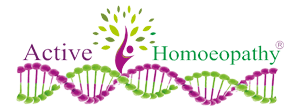Treatment of Uterine Fibroids & Polycystic Ovarian Disease (PCOD)

Uterus is reproductive sex organ of human. One end, the cervix, opens into the vagina, while the other is connected to fallopian tubes. It is within the uterus that the foetus develops during pregnancy and gain nutrition from mother. Uterus is responsible for secretion of various hormones before, during and after pregnancy hence to keep mother and child both healthy. After menopause uterus continue to regulate the oestrogen hormone hence protect female from osteoporosis i.e. destruction of bones.
Fibroid is also known as leiomyoma; fibromyoma; myoma.
Fibroid is Benign tumours of muscle and connective tissue that develop within or are attached to the uterine wall.
It Occurs mostly in the reproductive age group (16-45 yrs. of age). Oestrogen hormones, growth hormones have been implicated in growth of fibroids.
CAUSES :
- Due to hormonal imbalance, thickening of muscle layer of uterine wall occur resulting in formation of fibroids.
- It is suggested that fibroids enlarge with Oestrogen therapy (such as oral contraceptives).
- Fibroids can be microscopic, but they can also grow to fill the uterine cavity, weighing several pounds. It is possible for a single fibroid to develop, which begin as small seedlings spread throughout the muscular walls of the uterus.
- They slowly enlarge and become more nodular, frequently intruding into the cavity of the uterus or growing out beyond the normal boundary of the uterus.
- Emotional cause: -when a female is under continuous stress due to any problem with her husband or children or anyone for whom she cares like her child, she is more susceptible to suffer from the disease like uterine fibroid and polycystic ovarian disease. It is because of the disturbance in female hormones like oestrogen whose level in body is directly related with the emotional plane (attachment).
TYPES OF UTERINE FIBROID:
These fibroids are of three types in generals:
1) Intramural or Interstitial (75%): -commonest (heavy bleeding)
2) Submucosal (15%)
3) Subserosous (10%)
SYMPTOMS OF UTERINE FIBROIDS:
1. Symptoms presents as excessive vaginal bleeding, pain in lower abdomen, pain in lower back, feeling abdominal lump, increased vaginal discharges.
2. Pressure symptoms like increased frequency of urination or retention of urine.
OVARIAN CYST:
The ovary is an egg-producing reproductive organ, often found in pairs as part of the female reproductive system. Ovaries are both gonads(egg production) and endocrine glands(secreting various hormones responsible for menstrual cycle).Ovaries are responsible for maintaining the pregnancy up to the delivery of foetus.
Polycystic ovarian (PCOD) is one of the most common female endocrine disorders.
PCOD produces symptoms in approximately 5% to 10% of women of reproductive age
(16–45 years old).
It is thought to be one of the leading causes of a female sub infertility.
CAUSES OF PCOD AND OVARIAN CYST:
PCOD is a complex, heterogeneous disorder. There is
strong evidence that it is a genetic disorder. Such evidence includes the familial
history of cases and heritability of endocrine and metabolic features of PCOD.
It also occurs due to imbalance in the hormonal level in the body.
Other precipitating causes includes excessive misuse of cosmetic and beauty cream by
females, misuse of medicines, history of too many abortions.
SYMPTOMS OF PCOD’S:
1. Irregularities in menstrual period.
2. Amenorrhoea (absent menses).
3. Dysmenorrhoea (very painful menses).
4. Obesity in females.
5. Freckles on face.
HOMOEOPATHIC TREATMENT:
Homoeopathy gives weightage to “who is suffering”, whether than what she is
suffering from. This means when other sciences aim at treating diseases in man,
homoeopathic science at the very inception, has been devised to treat the man in
disease.
In modern science homoeopathy, the emphasis is given to remove the cause, the effect
will disappear automatically.
Homoeopathic science strictly believe that all the diseases occur with the
permission of individual genetic code.
Same is true for fibroid in uterus and PCOD’s these diseases are also governed by
and dependent on the genetic code and consider the patient as a whole. That is why
in homoeopathic case taking whole history of patient i.e. her physical symptoms,
nature, and behaviour, with her surroundings ups and downs in life is taken into
consideration and after complete history of the patient, the homoeopathic medicine
is selected which acted on the patient as a whole and help her to live a healthy
life.
After the right homoeopathic medicine, the internal system starts working normally
and the hormonal balance maintain in the female, menses starts coming regularly and
properly.


